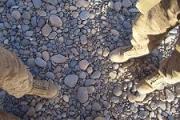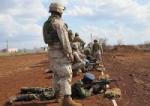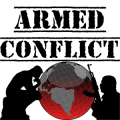MAJ Derrieu: Funny, they just never seem to succeed in striking the right note with the population. Either they come in and try to apologize for the mess we've just made with our planes and tanks; or they swagger and threaten the farmers as if they were enemy nationals which - let's face it - they are in many cases.
LT Dujardin: That may be so, but I wouldn't care to be in his shoes tonight when we pull out. He's going to stay right here in the house which the Commie commander still occupied yesterday, all by himself with the four other guys of his administrative team, with the nearest [military] post 300 metres away. Hell, I'll bet he won't even sleep here but sleep in the post anyway.
MAJ: He probably will, and he'll immediately lose face with the population and become useless.
LT: And if he doesn't, he'll probably be dead by tomorrow, and just as useless. In any case, there goes the whole psychological effect of the operation and we can start the whole thing all over again three months from now.
What a hopeless mess.



 Reply With Quote
Reply With Quote





 "A Sherman can give you a very nice... edge."- Oddball,
"A Sherman can give you a very nice... edge."- Oddball, 




Bookmarks